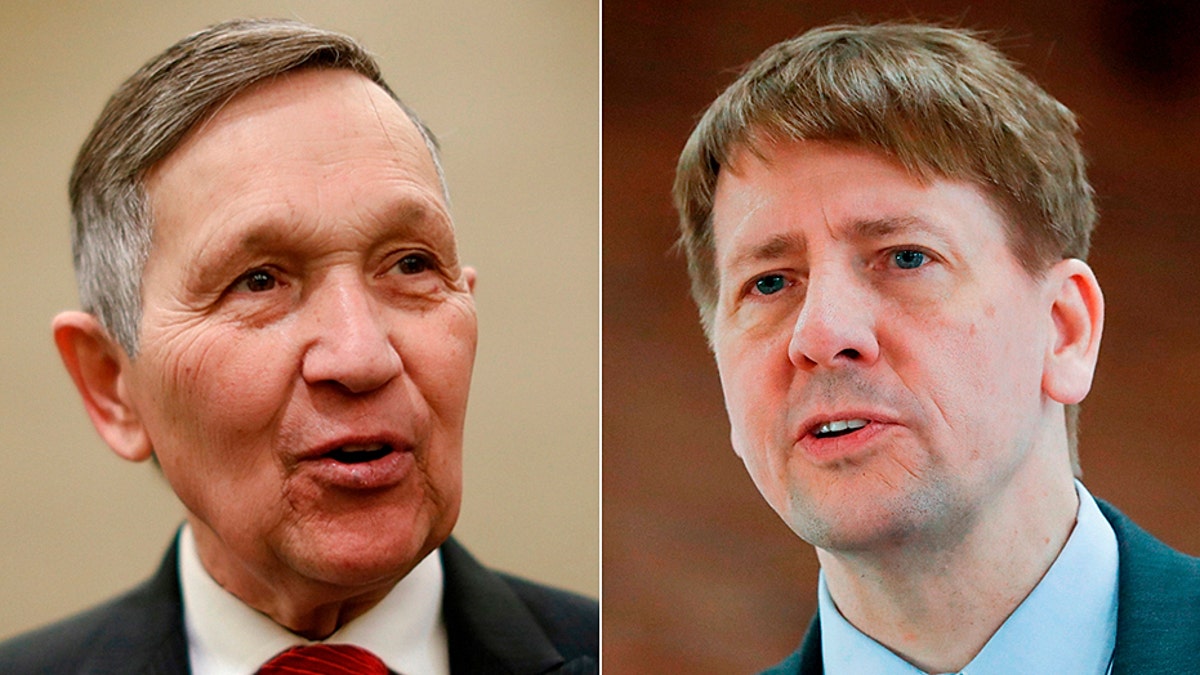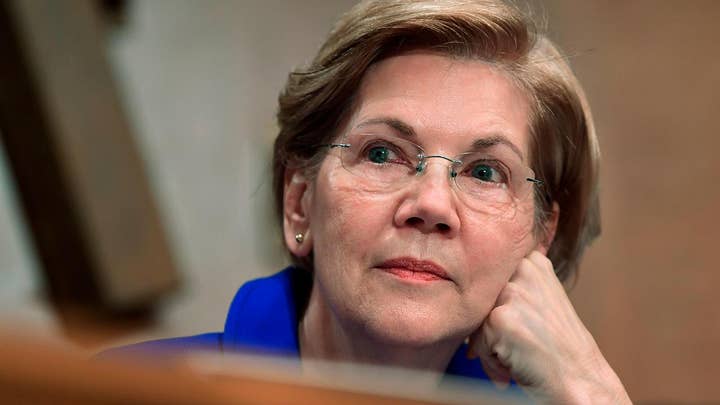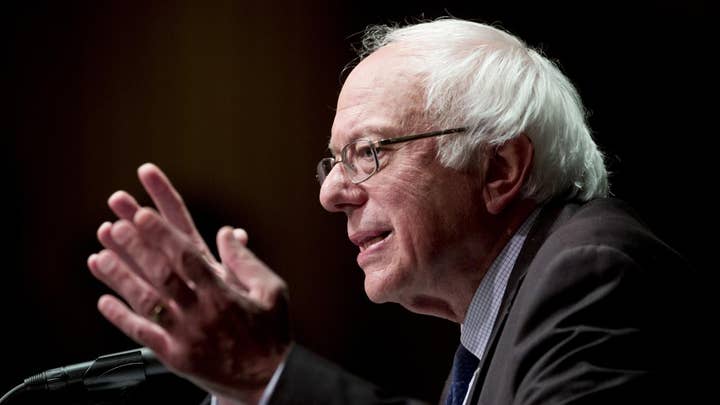
Democrats’ fight to win key gubernatorial races has produced primary battles splitting the liberal base -- and the first test will play out next week in Ohio, where candidates backed by Elizabeth Warren and Bernie Sanders supporters are facing off.
Sen. Warren, a potential 2020 presidential candidate whose efforts to regulate Wall Street have made her a champion of the party’s “progressive wing,” is backing Richard Cordray.
The 58-year-old Cordray is a former Ohio attorney general who last year resigned as director of the federal Consumer Financial Protection Bureau, which Warren helped start, to run for governor.
His major primary opponent is 71-year-old Dennis Kucinich -- who was first elected to office at 23, served as Cleveland’s mayor and a U.S. House member, and twice ran for president. He’s endorsed by Our Revolution, the self-described “next step in the Bernie Sanders' movement.”
The battle to succeed term-limited Republican Gov. John Kasich has, in turn, fueled GOP talking points that the Democrats are pulling their agenda to the left this year. In the GOP primary, state Attorney General Mike DeWine has a double-digit lead over Lt. Gov. Mary Taylor. Both are Trump-agenda supporters who have spent a combined nearly $10 million since December.
“While Dennis Kucinich and Richard Cordray argue over who’s more liberal, Mike DeWine is proving that he will work with President Trump to build an even stronger economy, end the opioid epidemic and stop sanctuary cities,” Ohio Republican Party Chairman Jane Timken told Fox News on Monday. “Ohio voters have consistently rejected the Democrat agenda because they know it only leads to higher taxes, job losses and less opportunity.”
Polls show the May 8 Democratic primary essentially tied or Cordray with a small lead. Oddsmakers like the nonpartisan Cook Political Report have rated the general election race “lean Republican,” which means the GOP has a slight edge.
Trump won Ohio in 2016 by 8 percentage points, and the state has had a Republican governor for roughly 23 of the past 27 years.
“This race is still in play, and who wins depends a lot on who wins the primaries,” Louis Jacobson, a state political handicapper for Governing magazine, said Monday. “But this is a swing state so a Democrat or a Republican could win. … The contrast of the two [Democratic] candidates makes that race more interesting. Cordray calls himself a progressive, but he has an establishment patina to him.”
Our Revolution President Nina Turner says Kucinich’s campaign slogan of #PowerToWeThePeople is “exactly the kind of change we need in Ohio.”
“Our [group] supports progressive champions at every level of government,” she also says.
Our Revolution cited Kucinich’s campaign platform, which like Sanders’ included calls for government-funded health care, criminal justice reform and, more recently, stronger gun-safety laws, after the recent mass shooting at the Parkland, Fla., high school.
Kucinich endorsed the 2016 presidential bid by Sen. Sanders, a Vermont independent who ran as a Democrat. But Sanders, a self-described Democratic socialist who's also weighing his 2020 plans, has not endorsed Kucinich.
To be sure, Kucinich has liberal chops, having pushed for so-called single-payer health care long before Sanders. But he hasn’t been elected since 2010, has taken heat for taking $20,000 for a speech before a group sympathetic to Syrian President Bashar Assad and has occasionally shown support for Trump, which has irked some Democrats, who also fear that Kucinich and his outspoken liberal agenda would lose in November.
Cordray, by comparison, seems less charismatic and more wonky, which raised concerns about his ability to connect with voters.
''He's unassuming,'' Warren, D-Mass., recently told The New York Times. “But he's a fighter.''
The de facto Sanders-Warren battle comes as Democrats try to figure out how to win elections in the Trump era. And it mirrors other 2018 gubernatorial races.
In New York, actress and activist Cynthia Nixon’s insurgent bid for governor includes calls for driver’s licenses for illegal immigrants and has pushed incumbent Democratic Gov. Andrew Cuomo to the left on issues like legalizing marijuana.
And in Florida, top Democratic candidates in the race to replace term-limited GOP Gov. Rick Scott also have largely fought for the liberal mantle, particularly with the issue of tighter gun control.














































